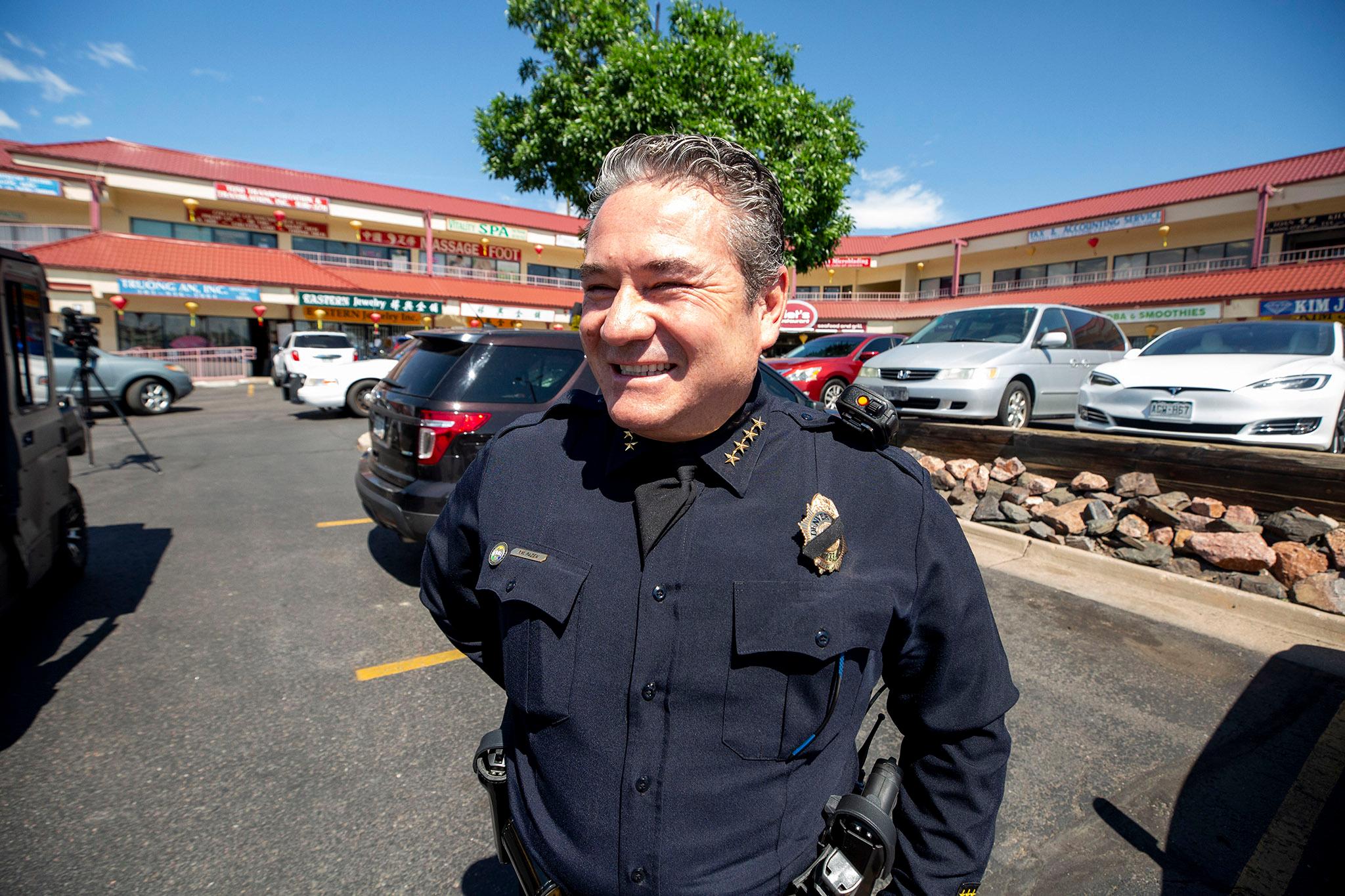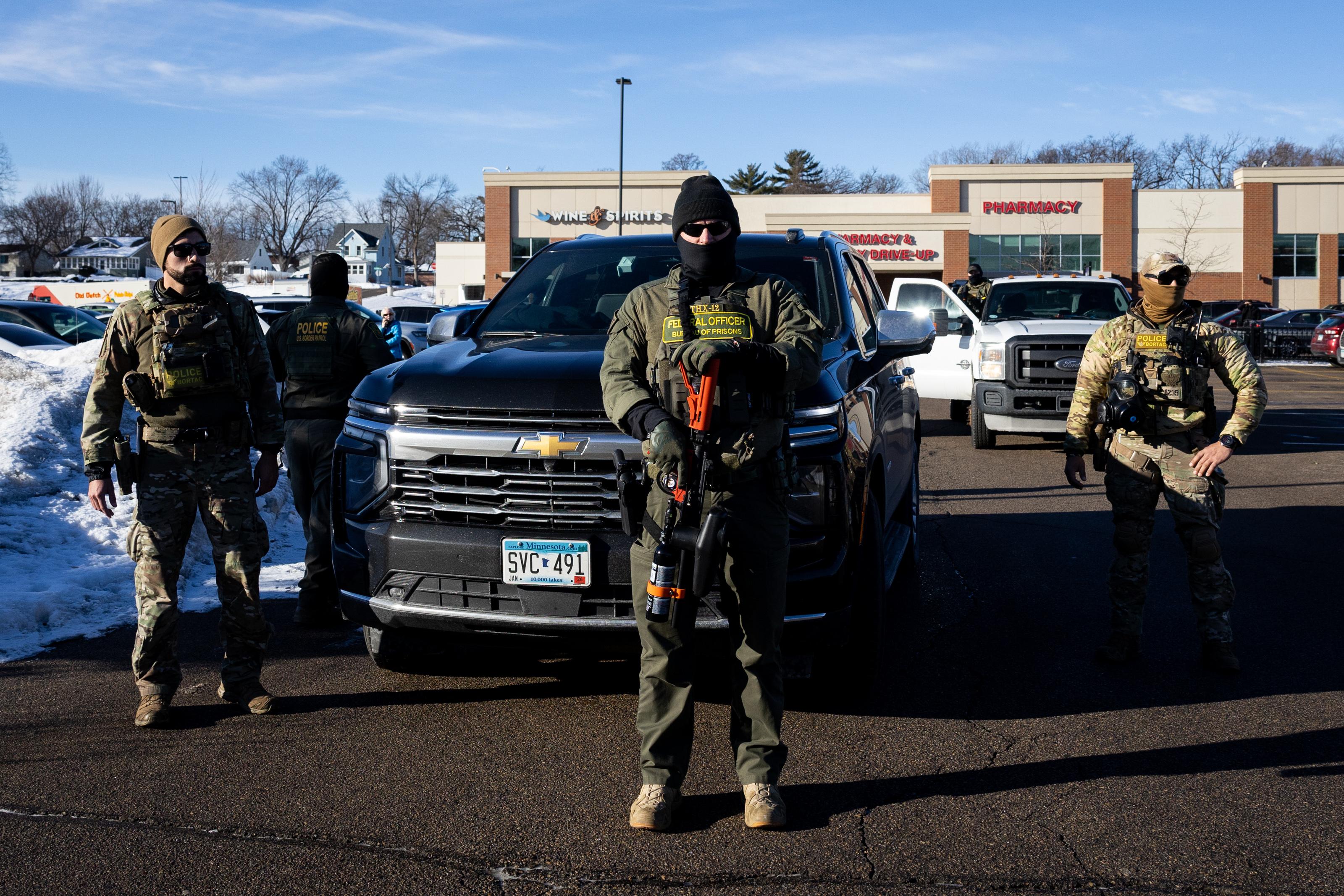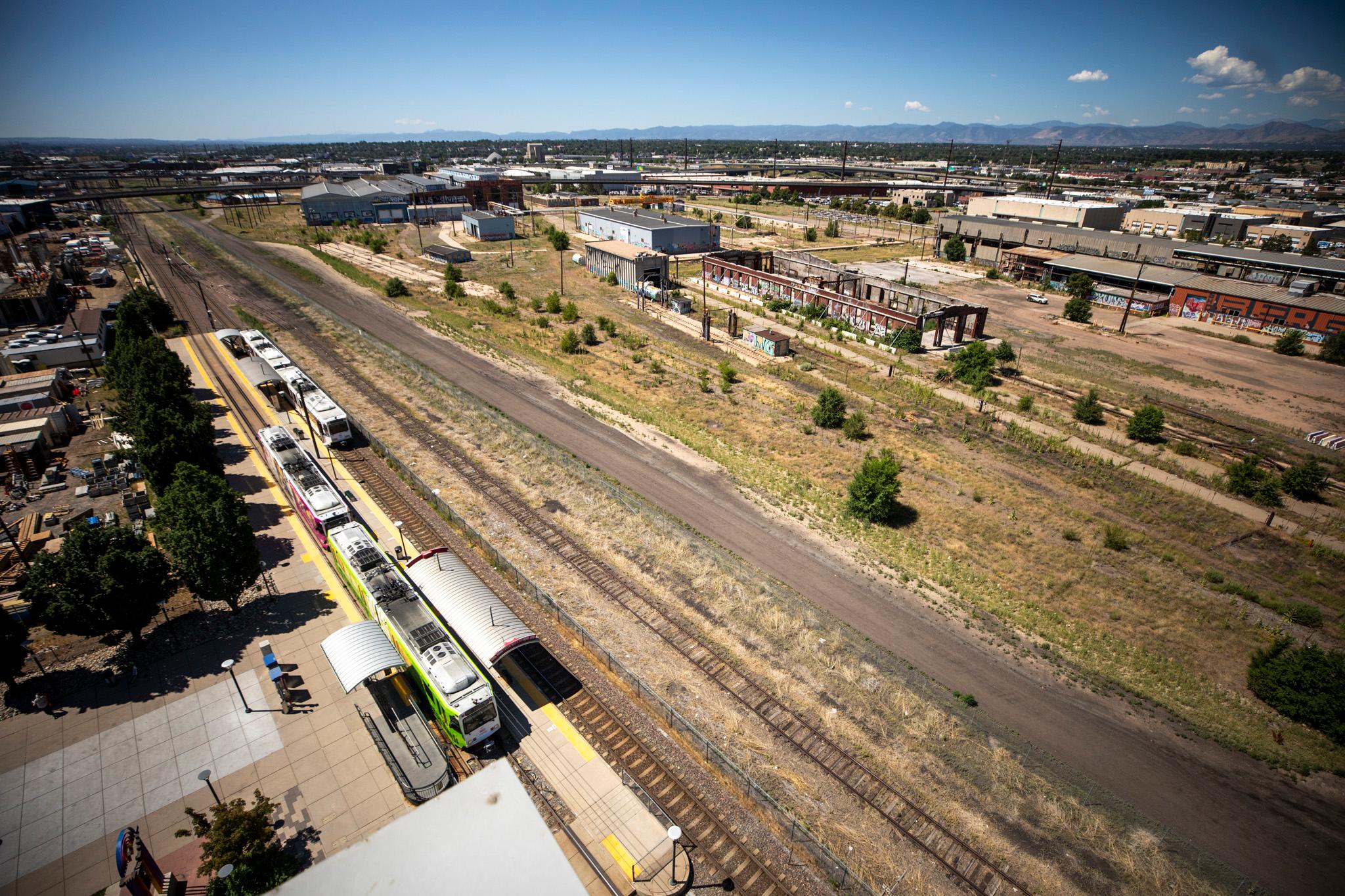Denver Police Chief Paul Pazen, who has been in the position since June 2018, announced he will retire on October 15.
Pazen served as District 1 commander from April 2012 to June 2018. Before joining DPD, he was in the Marines, where he served in Operation Desert Storm.
"It's been an honor to serve the people of this city, and I couldn't be prouder to have done it alongside these dedicated women and men of the department who've answered the call to protect the residents of Denver no matter the circumstance," Pazen said in a statement.
"Chief Pazen has had a distinguished career with the Denver Police Department, and over his nearly three decades in law enforcement, he has served the residents of our city at nearly every level of the department, including its highest rank, with integrity and a community-focused approach to policing," Mayor Hancock said in a statement. "I want to thank Chief Pazen for answering the call to serve, and for his leadership of our community's police department during these difficult past few years in the life of our city and our country."
Pazen is viewed as a possible candidate in the next mayoral race, though in December he told Denverite he would not be running.
He has served the police force for 28 years, the last few of which were in obviously historic times.
His time in the role has been marked with multiple excessive force settlements with the city, lawsuits over the department's handling of the 2020 George Floyd protests, and a citywide spike in crime, which he has addressed through its hot-spot program, targeting violent crime in specific areas.
Pazen's leadership during the George Floyd protests of 2020 was questioned by Denver police officers, who accused him of being "angry," "paralyzed" and failing at leadership, reported the Denver Post. The claims were made in interviews with the Office of the Independent Monitor, which skewered Pazen in a 92-page review of police conduct during the protests.
Department leaders accused him of failing to provide officers with adequate training so they could manage the protests effectively. Protesters have been suing the department for a variety of misdeeds, including excessive force.
Pazen has been a vocal supporter of the STAR program and other social service work designed to connect people in crisis with medical and social service support -- instead of police.
He's also part of the team launching the Assessment Intake Diversion Center, a program designed to push low-level offenders out of jail and connect them with services.
Pazen led the department through the first years of the COVID-19 crisis. That included time during lockdowns, when police officers were some of the only city workers required to do their jobs in person.
The chief, and fellow officers, made headlines when they participated in the Moderna vaccine trials in December 2020.
Not all officers were enthusiastic about vaccines. When city workers were required to be vaccinated by the city, some officers objected and seven sued the city, the Denver Gazette reported last September.
What now?
Mayor Michael Hancock has nominated Ron Thomas, the current Division Chief of Patrol, as the next Chief of Police. Thomas will take on day-to-day operations as acting Chief starting September 6. His nomination will head to City Council for confirmation.
The next chief has been part of the department since 1989. He served in patrol, investigations, special operations and administrative positions within the department.
He's been commander of Police District 2, Police District 5, and the department's Internal Affairs Division before his current job.
Thomas led the creation of the Denver Police Wellness and Resiliency Program.
This story is breaking and will be updated.











